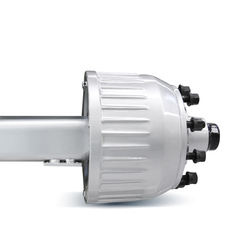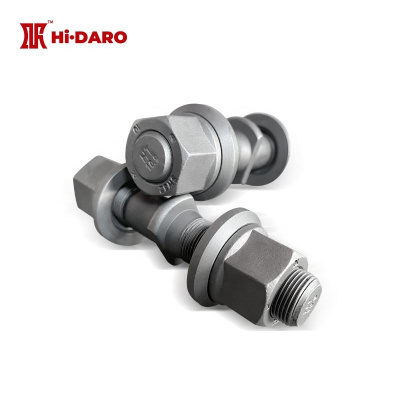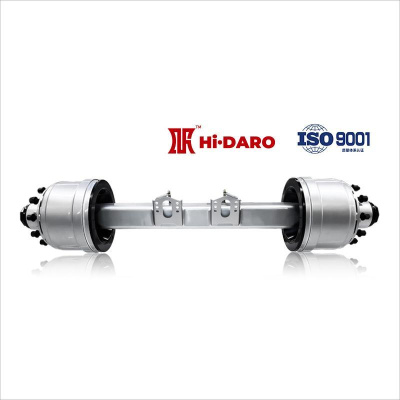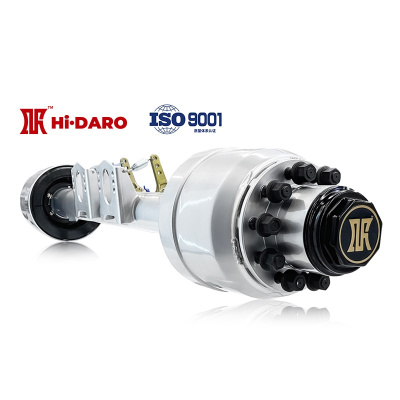Can the trailer be equipped with ABS to save 8 tires a year?
When it comes to the ABS system, I believe that many truck friends will not feel unfamiliar. With the continuous development of vehicle technology, ABS has now become the standard configuration of tractors.
The full name of ABS is called anti-lock braking system. During the braking process of the vehicle, it can prevent the wheels from locking, ensure the rolling friction state between the tire and the road surface, improve the friction force, greatly improve the safety of the vehicle, and reduce the cost of vehicle maintenance to a certain extent.
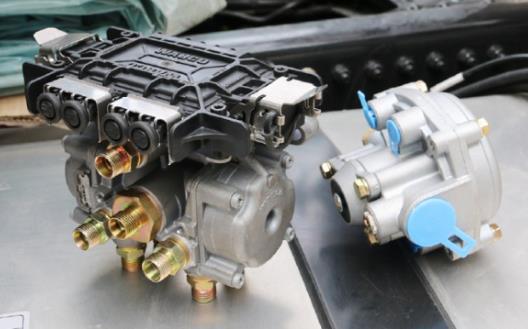
A card friend once said that he and his friend bought two three-axis low-profile flatbeds of the same specification at the same time. After picking up the car, he made a positioning for the trailer and installed a set of six-channel ABS system. The optical transmission cost about 6,500 yuan, but his friend did not install it because of the high price. After using trailer axle the vehicle for one year, my friend replaced 14 tires on the car, and I only replaced 6 tires, which is equivalent to saving 8 tires a year.
In addition, ABS can also allow the vehicle to maintain good controllability under emergency braking to avoid obstacles or dangers ahead; it can also ensure vehicle safety on rainy, snowy and slippery roads, reducing or avoiding floating skids, tail flicks, head folding or loss of control during braking.
But in practice, many car owners are unwilling to install the ABS system. On the one hand, it is due to the price factor. They feel that the price of ABS is too expensive, and it is not mandatory to install trailer axle it by law, so they are not willing to spend more money to install it;
In fact, ABS is an investment method with long-term returns. You may not feel any benefits when you first install it, but after a long time, the cost advantage in vehicle maintenance will appear. It may be possible to pay back the cost in one or two years. What's more, ABS can provide the necessary safety guarantee at some critical times.
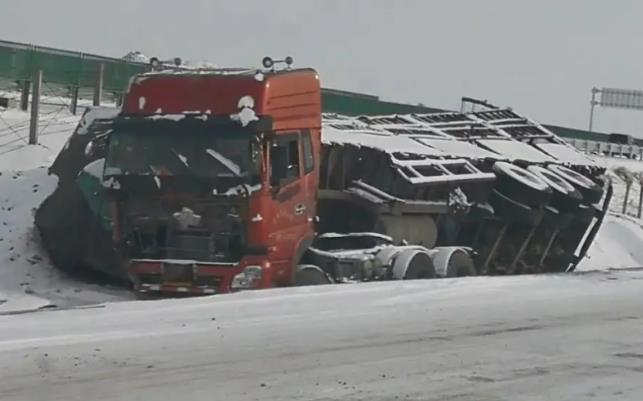
Maybe some car owners are used to the "brake king", and the wheels will lock up when they step on the brake lightly, so they are not suitable for the use of ABS, which requires one foot to the bottom.
In fact, the "Brake King" just changes the air flow of the brake pump or brake valve, and shortens the response time by increasing the air flow, which to a certain extent damages the linear growth of the braking force, which is what car owners often say, "Light pedaling will lock up, heavy pedaling will result in no braking force." Besides, after the wheels are locked, the controllability of the steering wheel decreases or even loses controllability, which is not a good phenomenon.
In contrast to the ABS system, although the brake pedal will rebound upwards after starting, this is due to the air pressure adjustment. It is to ensure the rolling and sliding performance of the wheels, to ensure the maximum adhesion between the wheels and the road surface, and to have controllability. This is also a braking habit that car owners who have replaced ABS need to adapt to.
There is another point that car owners are more concerned about: the braking distance of ABS. Although judging from the official publicity information, the main function of ABS is to prevent the wheels from locking up, and it does not promise to shorten the braking distance. However, according to the experimental data, the braking distance of models with ABS is much shorter than that of models without ABS.
why? Because when the vehicle does not have ABS, the tire will lock up after reaching the braking peak, and one fixed surface of the tire will rub against the road surface. The temperature of the rubber will increase, the strength will decrease, and the friction force will also decrease accordingly; the vehicle with ABS can prevent the wheel from locking up, so that different surfaces of the wheel will contact and rub against the road surface, so the friction force can be maintained at all times. Only on some special road sections, such as a lot of snow, gravel roads, deep sand, and thick mud, after the wheels are locked, a mound of dirt can be formed on the front wheels to stop the vehicle from moving forward, so the braking distance of vehicles with ABS will appear longer. On wet and slippery roads with ABS, the body of the vehicle with ABS will be much more stable when braking.
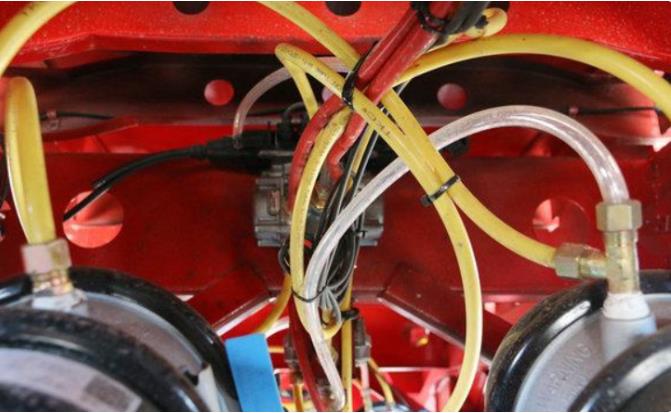
Some car owners said that on icy roads, ABS will prevent the brake pedal from being pressed down and the vehicle will not stop, thus extending the braking distance. In fact, this statement is biased, because ABS can prevent the tires from locking up and provide the largest friction coefficient, but it cannot exceed the physical limit of the tires and the road surface. Under the same road conditions, if the vehicle does not have ABS, it is likely that the tires will lock up and the vehicle will lose control. It is not just a matter of the length of the braking distance. Therefore, when driving on icy roads, the key is to slow down in advance and drive slowly, and you cannot simply count on emergency braking.
Another car owner said: Usually listening to ABS is "several channels", how to choose?
"Several channels" is a common name for ABS sensors. For example, "four channels" means 4 sensors, and the official expression is "4S/2M", which means 4 sensors and 2 ABS solenoid valves.
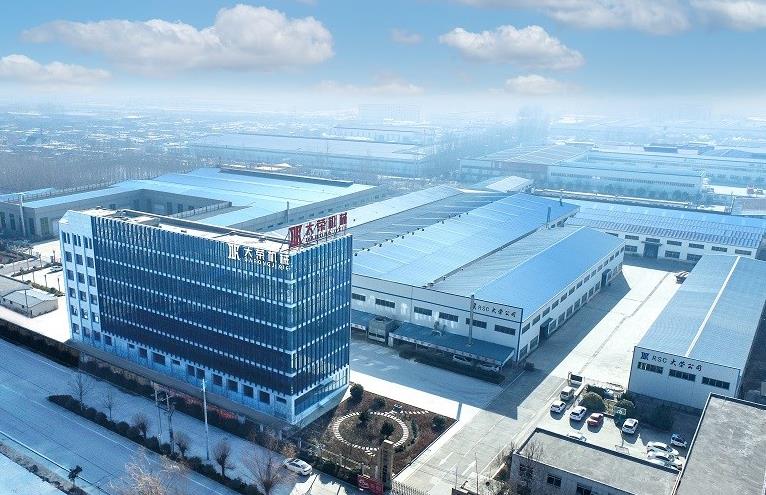
Taking a three-axle semi-trailer as an example, you can generally choose a four-channel or six-channel ABS. The four-channel solenoid valves control the wheels on the left and right sides respectively, and the six-channel ABS has an independent control unit for each trailer axle. Therefore, the six-channel monitoring and control must be more accurate, and naturally the purchase cost is also significantly higher than the four-channel. If the road conditions that the car owner usually runs on are relatively good, such as high-speed, national highways, and provincial roads, four-channel ABS can meet the needs of use; if the usual road conditions are relatively complicated, then six-channel ABS should be selected as much as possible.
